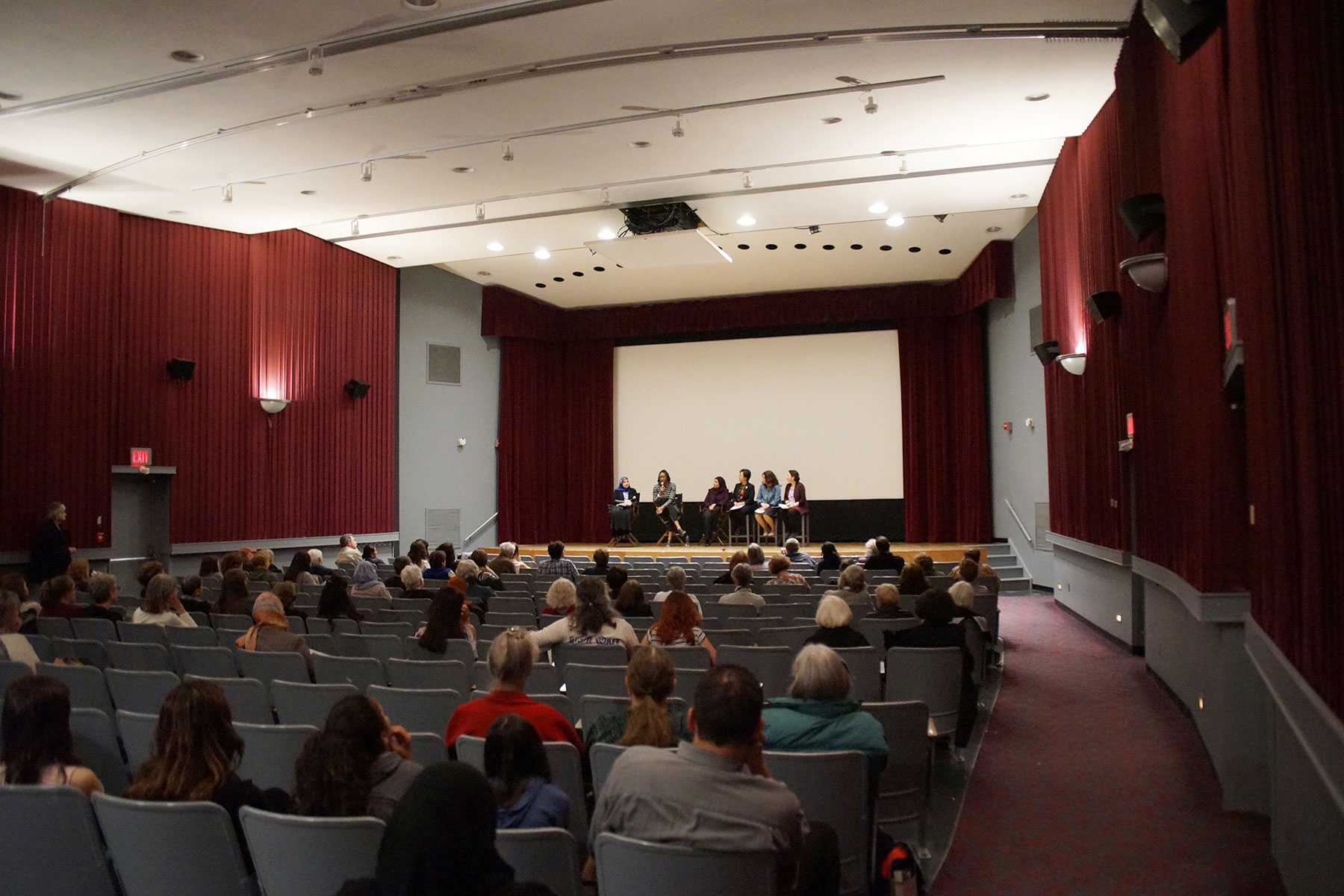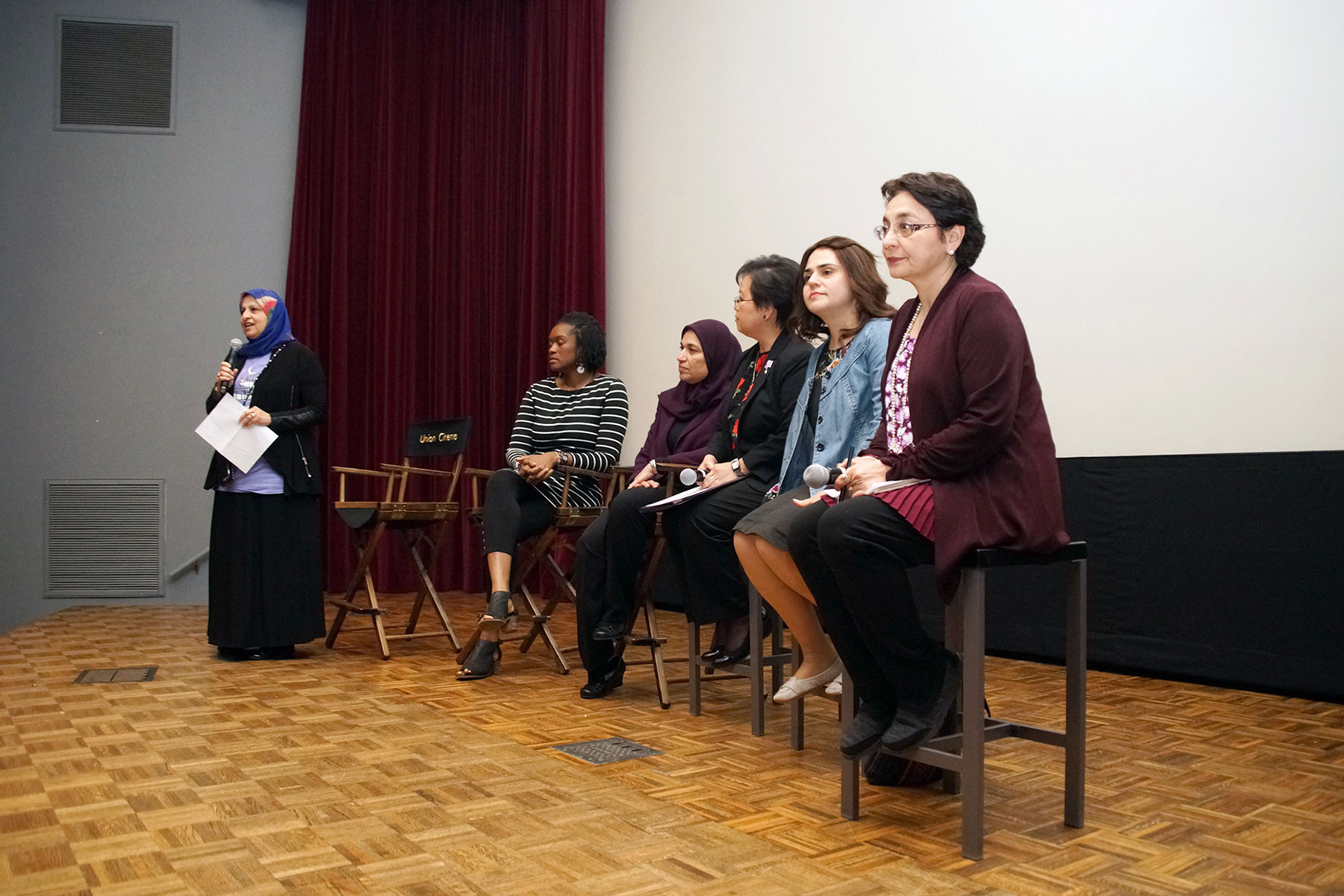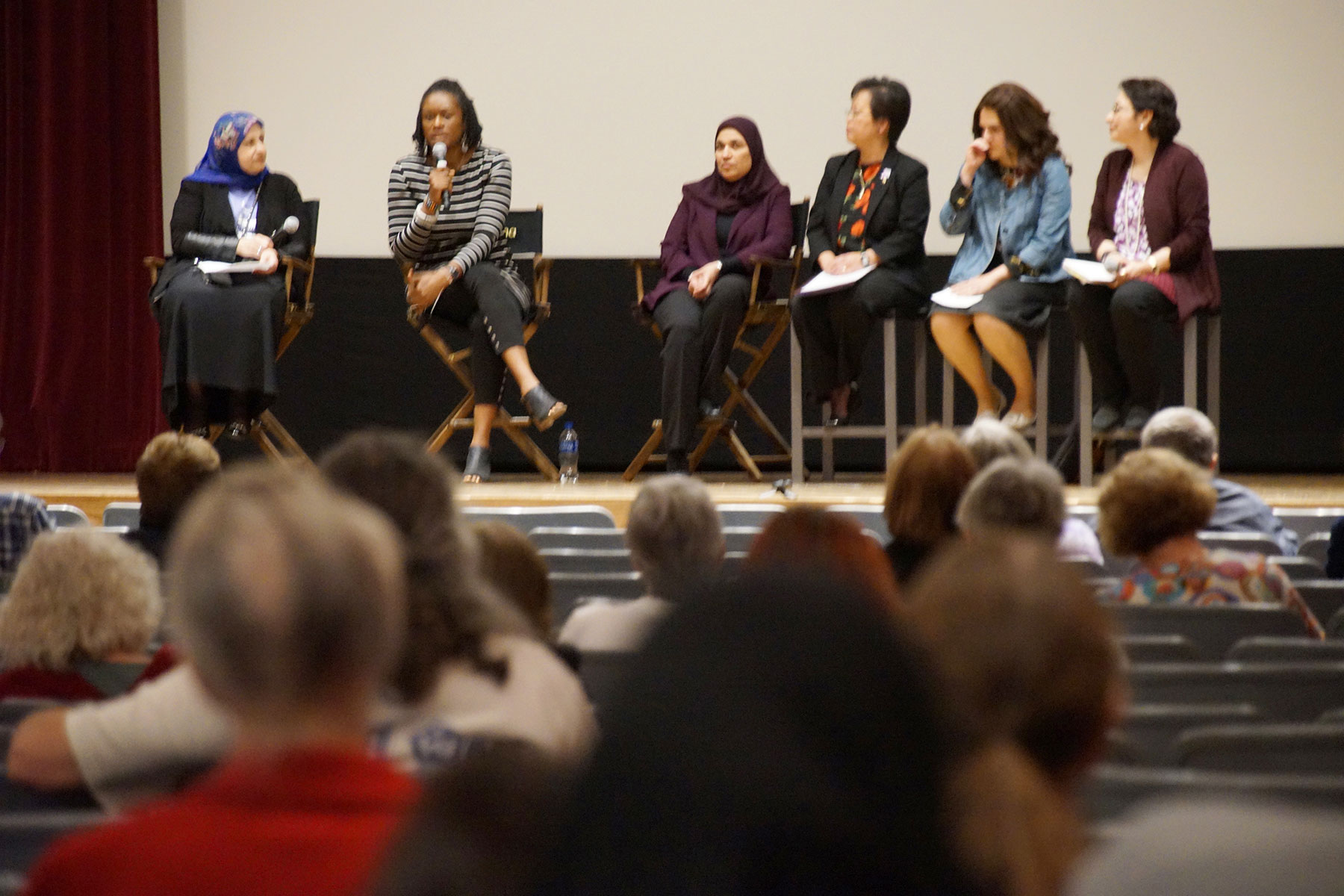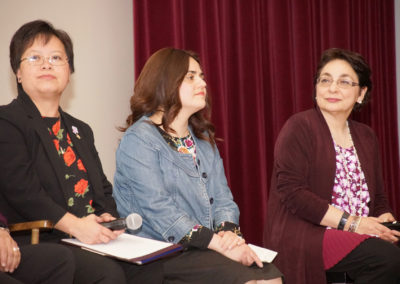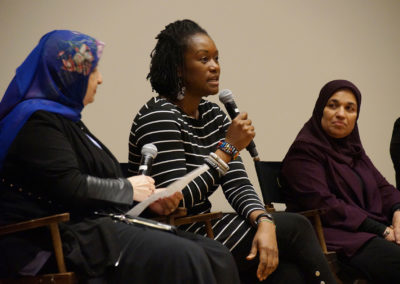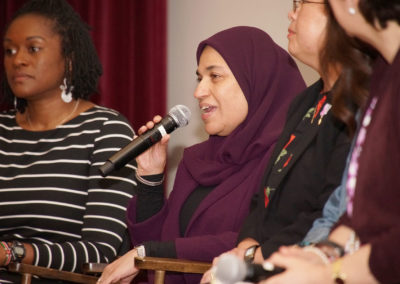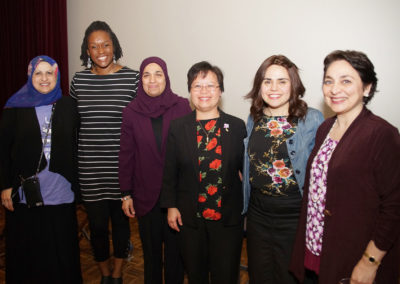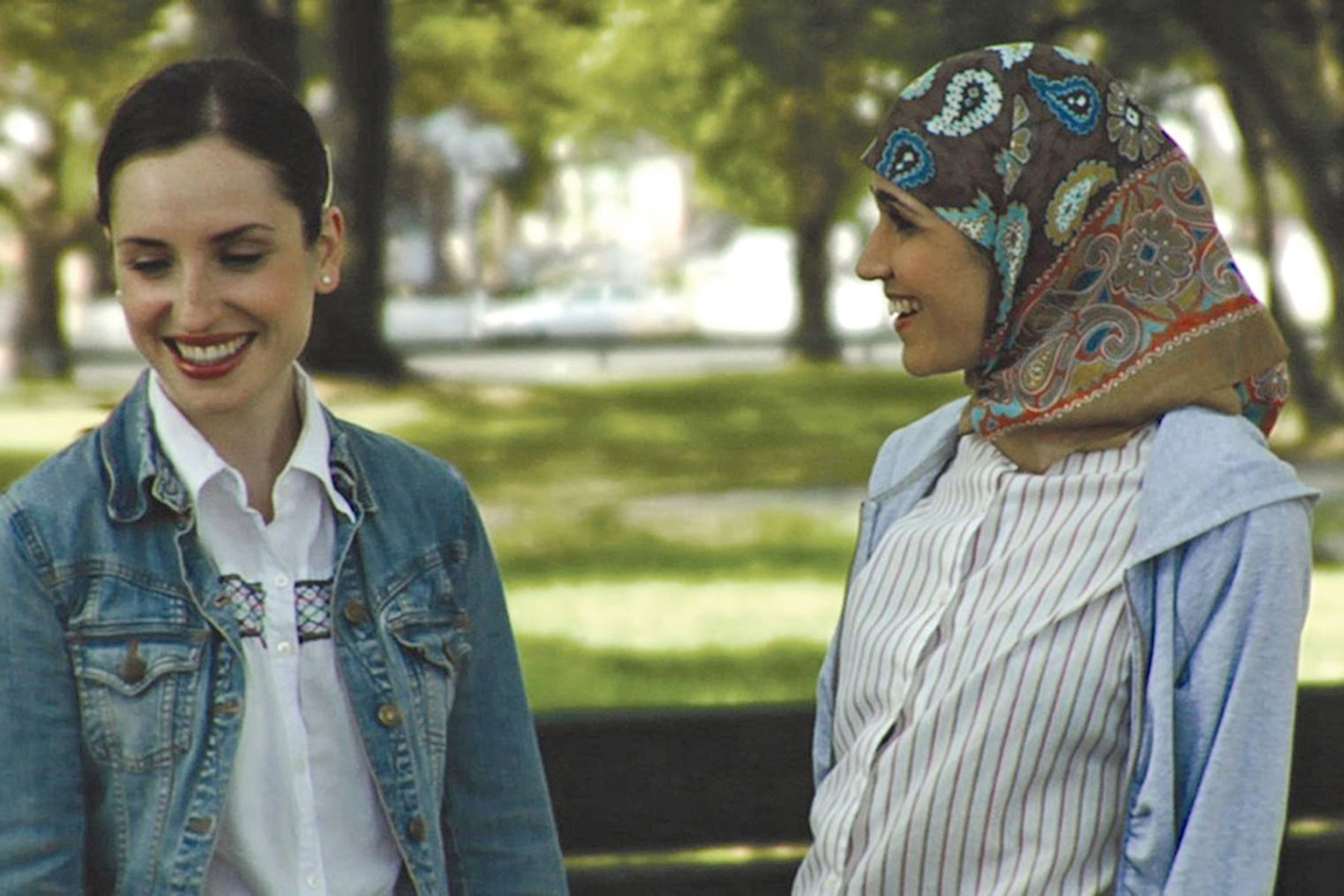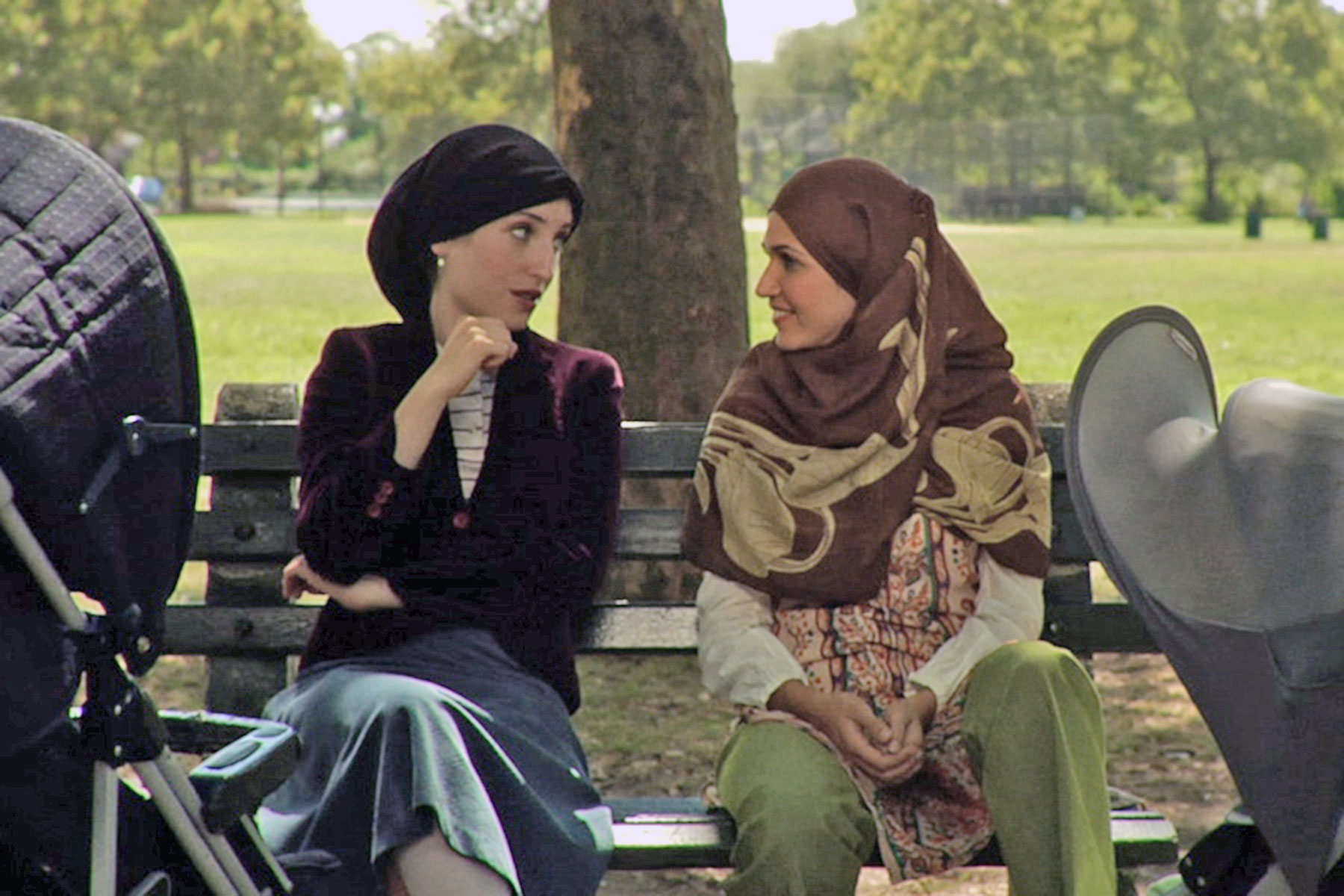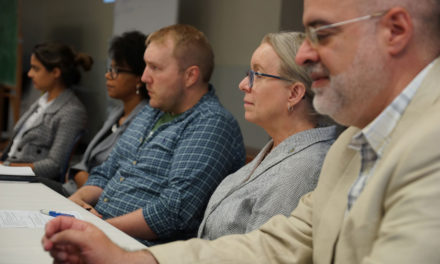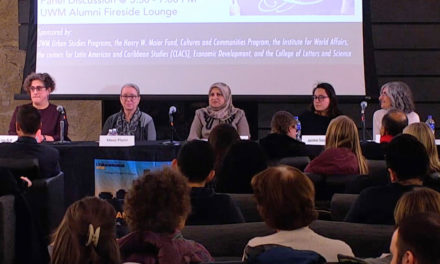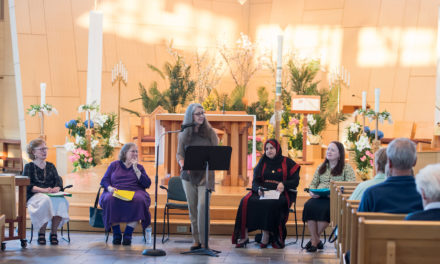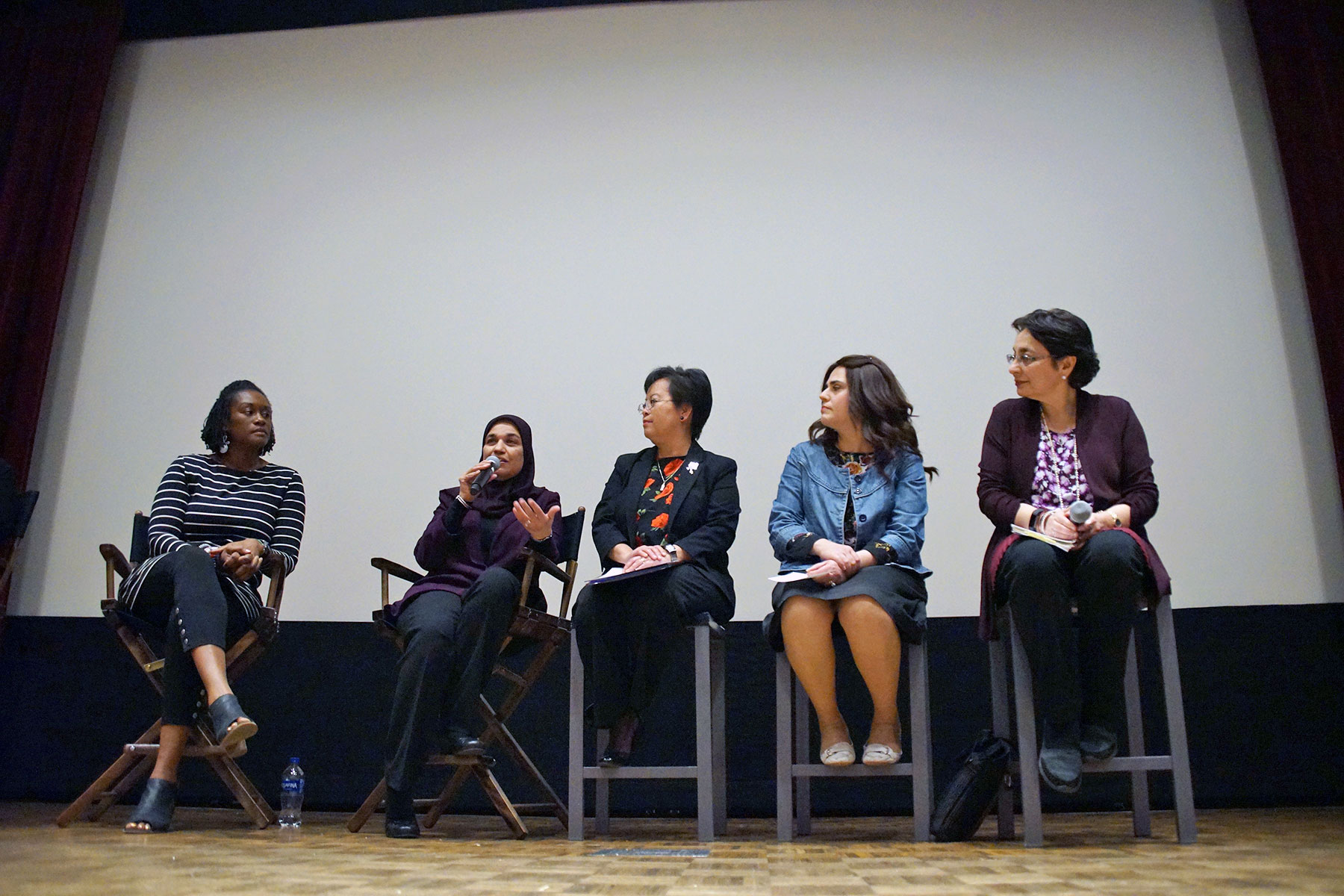
A diverse group of five dynamic women, all from different faith and cultural backgrounds, participated in a panel discussion after the movie “Arranged” was screened at this year’s Milwaukee Muslim Film Festival on May 7.
The movie told the story of arranged marriages, and focused on a Muslim woman and an Orthodox Jewish woman who were friends and first-year teachers who each prepare for the process arranged matrimony.
Arranged marriage conjures up for many people the images of child marriage and forced marriage. This film refers to it as a family engagement in the process of searching for a suitable spouse, no different than an introduction.
Nasira and Rochel discover they are both exploring the possibility of getting married, and that both of them are from devout religious families. Each culture has the tradition of parental involvement in suggesting and getting to know eligible bachelors.
Both women teach in a secular environment at a Brooklyn public school. Because Nasira and Rochel have opted for a different approach to life, as they withdraw from other female school teachers they inadvertently draw closer to each other.
The Muslim teacher and the Orthodox Jewish special education teacher begin to suspect that they may have more in common with each other as religious women than with anyone else in the school.
In the classroom, the kids begin to question whether they hate each other, since they have heard stereotypes. “I heard that the Muslims want to kill all the Jews,” said a fourth-grade student.
Rochel designs a unity circle exercise in order to help the students better appreciate differences and the benefits of choice and community.
At a time in America when public discussion of marriage tends to be limited to either vicious fighting or depressing divorce statistics, Arranged provides a welcome alternative with a focus on relationship, commitment, and family.
The panel presentation was organized by the Interfaith Conference of Greater Milwaukee and its Committee for Interfaith Understanding. Janan Najeeb is the committee chair, and moderator of the discussion segment. Najeeb is also a founder and president of the Milwaukee Muslim Women’s Coalition, which organized the film festival.
Panelists in the talkback were Shauna Singh Baldwin, an award-winning Canadian-American novelist and playwright of Indian descent, who lives in Milwaukee and attends the Sikh temples in Brookfield and Oak Creek; Liliane McFarlane, Grants Manager for the Greater Milwaukee Foundation and a co-founder and member of the Milwaukee African Women’s Association; Chava Metzger, Director of Educational Support at Yeshiva Elementary School (an Ultra-Orthodox Jewish school) and a practicing school psychologist; Mayhoua Moua, Executive Director of Southeast Asian Educational Development, founding president of the Hmong American Women’s Association, and founder of a consulting firm that provides translations and diversity training; and Zehra Tahir, Vice Principal of Salam Middle and High School, school counselor, and board member of both the Milwaukee Muslim Women’s Coalition and the Islamic Society of Milwaukee.
The audio was recorded live at the talkback session, and encouraged audience questions which were inspired as the result of watching the film.
